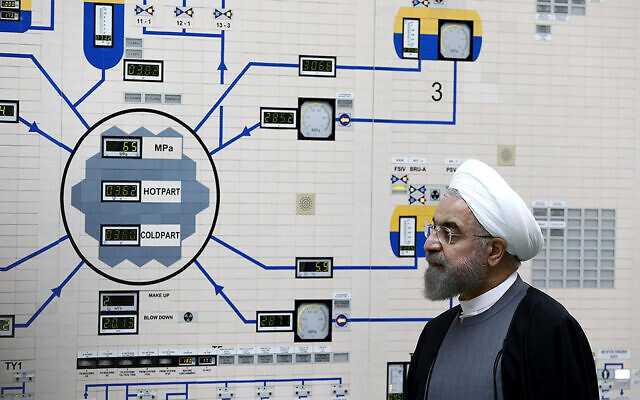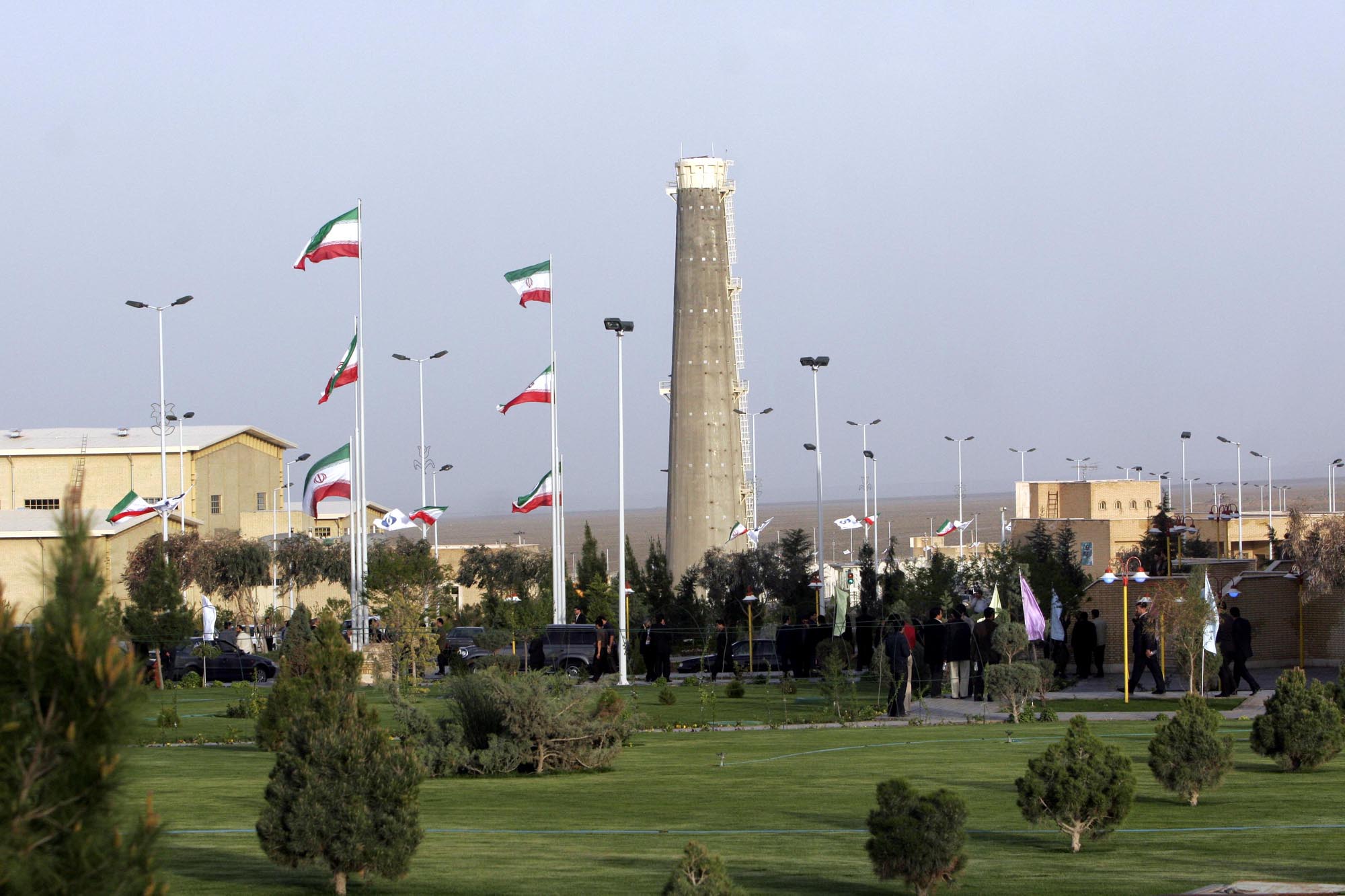
International Atomic Energy Agency: Iran is enriching more uranium
at underground site, will install more equipment; Tehran confirms.
Iran has continued to ramp up its nuclear program in violation of its 2015 agreement with world powers by further enriching uranium and installing new centrifuges, the United Nations’ nuclear agency said.
The fresh breaches of the nuclear deal came as tensions continued to climb in the Middle East, and US and Israeli officials issued warnings about Iran’s nuclear program.
The International Atomic Energy Agency — in a confidential report obtained by Reuters and published Tuesday — said Iran has begun enriching uranium in its underground Natanz plant with a second cascade, or cluster, of centrifuges,.
The first cascade it installed recently was composed of 174 IR-2m machines, according to Reuters.
Iran’s envoy to the UN nuclear watchdog confirmed on Tuesday the installation of the second batch of advanced centrifuges at Natanz.
“Thanks to our diligent nuclear scientists, two cascades of 348 IR2m centrifuges with almost 4 times the capacity of IR1 are now running… successfully in Natanz,” Kazem Gharibabadi said on Twitter.
“Installation of 2 cascades of IR6 centrifuges has also been started in Fordo. There’s more to come soon.”
Natanz is Iran’s main nuclear enrichment plant. An explosion at the site last year, which foreign media reports have attributed to Israel or the US, damaged an advanced centrifuge development and assembly plant.
Iran said last month it planned to install 1,000 new centrifuges at Natanz within three months and that its scientists had exceeded previous goals for uranium enrichment.
Also last month, Tehran announced it was beginning to enrich uranium up to 20 percent — far beyond the 3.5% permitted under the nuclear deal, and a relatively small technical step away from the 90% needed for a nuclear weapon. Iran also said it was beginning research into uranium metal, a material that technically has civilian uses but is seen as another likely step toward a nuclear bomb.
Iran said last week it would also move to restrict short-notice inspections of suspect nuclear facilities from late February.
Iran insists it is not seeking to develop nuclear weapons, a position repeated last week by its Foreign Minister Mohammad Javad Zarif.
Tuesday’s report came amid a flurry of activity surrounding Iran’s nuclear program and as Iran and the US maneuvered ahead of expected negotiations.
US President Joe Biden has said he intends to return to the nuclear deal if Iran first returns to compliance. Iran says the US must first remove all of the sanctions it placed on the country after it withdrew from the treaty.

Zarif on Monday asked the European Union to coordinate a synchronized return of both Washington and Tehran into a nuclear deal.
The US and Iran have exchanged barbs, both before and after Biden took control of the White House, including by issuing threats and carrying out military maneuvers.
US Secretary of State Antony Blinken said Sunday that Iran was currently months away from being able to produce enough material to build a nuclear weapon. And, he said, that timeframe could be reduced to “a matter of weeks” if Tehran further violates restrictions it agreed to under the 2015 nuclear deal with world powers.
Iran and the Trump administration exchanged a steady stream of threats before Trump’s term ended on January 20, with Iran also carrying out fresh breaches of the nuclear agreement. Iran’s aggressive moves were believed to be partially aimed at increasing its leverage ahead of negotiations with Biden.
The Biden administration’s policy on Iran is expected to be a point of contention between the new US administration and Israel. Israeli officials have voiced strong objections to the US rejoining the nuclear deal, and have also issued threats against Iran in recent weeks.
(Times of Israel).